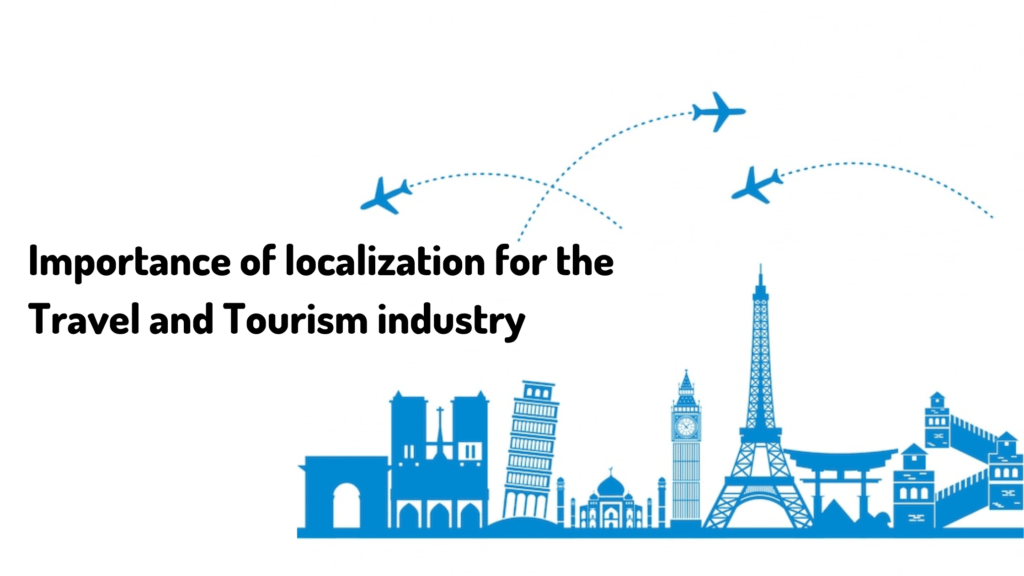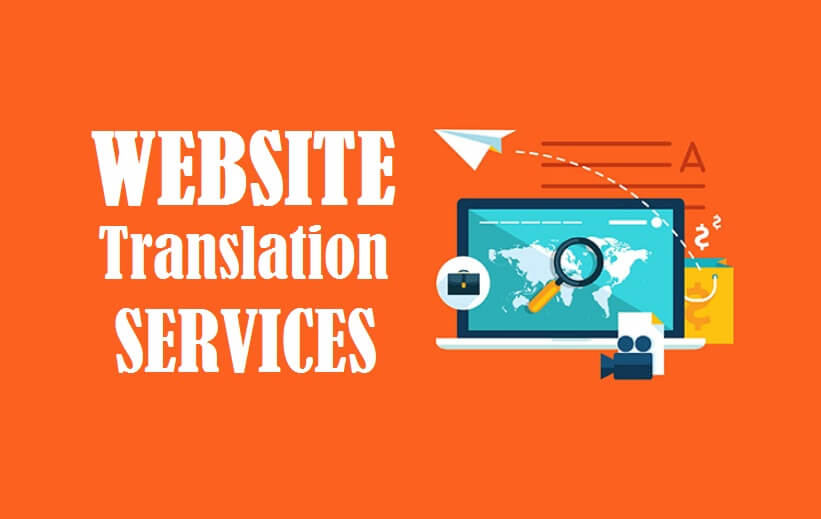When the audience comes with a website and can’t find digital content in their own language (native language), they will look for the information needed elsewhere and you may have lost a potential reader. Psychologically, the audience can feel a strong bond of communication, efficiently with uploaded content, people will browse a website in depth if they’re able to understand the content and information presented to them. By localizing the web portals, end-users reaching it will not solely be interested in reading its content but will be enticed to visit your hotel, your city, using your traveling services, and the like. The audience will not learn a language or use a dictionary to try and get the message. They are interested in your content for addressing them in their native language, so it makes sense for you to pick the extra mile and meet them halfway by looking into professional localization.
When approaching an international reader, smaller missed details can make a huge difference. For travel and tourism, these details are exceedingly important. E.g., visuals (like videos and images) can completely impact your audience, as the several components need to be socially relevant. Depending upon the audience that a company may be considering, it can be especially important to think about the across localization process. Copying any digital content can also be crucial for travel and tourism. While it might seem to be obvious, little things like currency and measurement change, depending on your audience, it is significant to be ensured that numbers and symbol lines up. More than that, localizing content needs to be available on-site as well. Several safety information, services brochures, maps, menus and more are on the list of things to be localized for many travel agencies and hotels across the globe. Content localization for travel and tourism industry can make your web portal and marketing elements culturally and linguistically relevant to a particular target audience.
The most significant part is to realize the role of localization or translation through tourism translation services for your business. It is further more than translation that modifies various elements:
- Location-based keywords – Every market has its own researched keywords with various search volumes & traffic potential audience.
- References based on culture – “Cultural references” specify by using something specific about culture to connect with your audience. E.g., you might get mentioned a traditional usage of an idiomatic expression.
Why digital Content travel and tourism translations, even needs Localization?
When it comes to localization, travel & tourism content has no exception. If you want your travel & tourism content to be a great success in foreign markets, one should accommodate their digital content to the specific culture and language. Hence, translated or localized copies should be 100% accurate and can meet the same standards as the original content.
Which Travel Sectors Need Localization?
The travel and tourism industries are two of the fastest-growing sectors. But, they are also the two most complex sectors, as they demand a seamless level of customer-based service and steady communication with clients across the world. Of course, to provide an excellent customer experience, companies need to localize or translate their digital content in several languages and markets.
- Resorts & Hotels (Travel & Tourism Industry through travel and tourism translations)
These resorts & hotel companies could survive with any website and maybe a scarcely translated brochure. Whereas, as we move into a time where travelers book rooms in any region of the world in real-time, companies need to provide localized digital content which can fulfill the needs and interests of their target audience. This option also means taking care of the word presentation and selection – sizes, adapting fonts, and colors to match the feel and look of several countries. With thorough attention in details, hotels or resorts can create an immersed travel or tourism experience for an international audience that feels tailored just for them.
- Airlines/Airways
Audiences with several citizenships, backgrounds and culture use airlines, and accordingly, airline businesses should try to reverberate with their international audiences. Airways management can be stressful and tricky for various audiences due to the formalities, linguistic elements, regulations, etc. But, localization or translation can deal with assured and challenges a smooth trip for clients around the globe.
- Hospitality
Several companies in this industry are increasingly searching to increase their sectors into new foreign markets by tourism translation services for your business. But as they do, the companies understand that simply localizing existing market elements & websites is not enough. They need to adapt their offerings to local preferences to be successful. This option means insight into the cultural regulation of different regions and countries. For example, what may be explored in polite conversation subjects in one nation could be taboo in many countries. Localization is vital for companies working in the hospitality sector if they want to indulge in new foreign markets and to grow their businesses.
The Best Practices of tourism translation services
The best practices are to be planned for it before you create your website. It will help allow that your digital content is ready for translation/localization and cultural adaptation into various languages. You’ll also need to acquaint yourself with the recent trends in aggregations, software localization, service localization, and marketing campaigns so that your website is as successful as possible in the markets.
1. Be Clear About Your Target Market
Before you start to write multilingual digital content, you need to first decide your target audience. It’s essential to know what language to use. But, it is as crucial as to understand, how to localize that language effectively. Switching to skilled translators is essential to connect with any digital audience.
2. Focus on the world’s most understandable languages
Recently, this makes sense to create adapted marketing policies with the number of spoken languages. The numbers are estimated, as many people are mid-fluent, statistically, are not necessarily 100% accurate. Therefore, they specify how massive some of the most famous languages are – and how businesses can miss out by failing to involve their speakers.
3. Focus on Transcription, not Translation
Therefore, we constantly create differences in transcription and translation, and it can create differences between all the marketers need to master when expanding into their new audiences. Transcreation goes further, it seeks to assure that the meaning of digital content is retained, but that the forms of expression used are suitable for a completely diverse culture. It uses cultural knowledge to reshape content, resulting in more compelling results. So, when formulating a marketing strategy to grow in international markets.
4. Choose translation management software and take a look at these elements:
A translation memory – The database of translated digital content which is translated, localized and approved, it will be stored in the translation memory. So, you speed up the operations/activities and reduce the manual duties.
- Direct website translation solution – Straight website translation of tourism will enable you to translate the texts directly from the website. Thus, you will be able to raise the rhythm of your workflow.
- Collaborative functions – Behind the digital content creation situated in the hours of cooperation, teamwork, and revision. Hereby, assure that your web portal has the essential element of successful collaboration: feedback section, notes, tags, etc.
5. You should build your team
If you are not confident about recruiting staff members or freelancers to carry forward out a multilingual digital content strategy. It’s an intimidating situation and one that demands a strong level of accuracy and consideration to detail.



